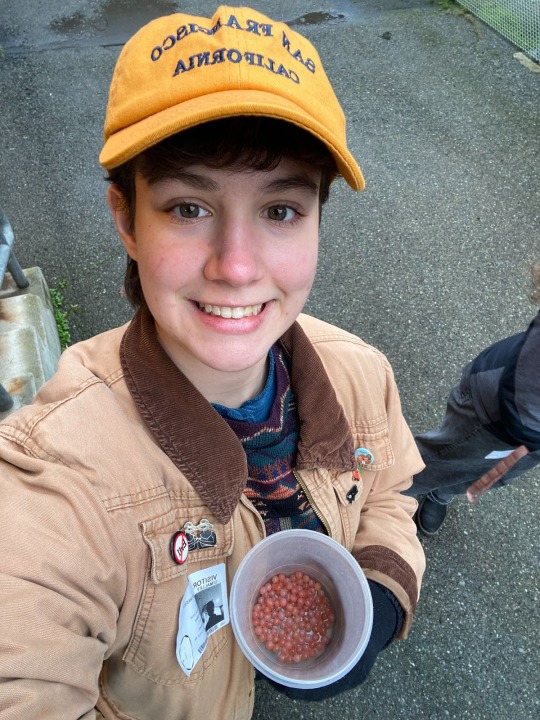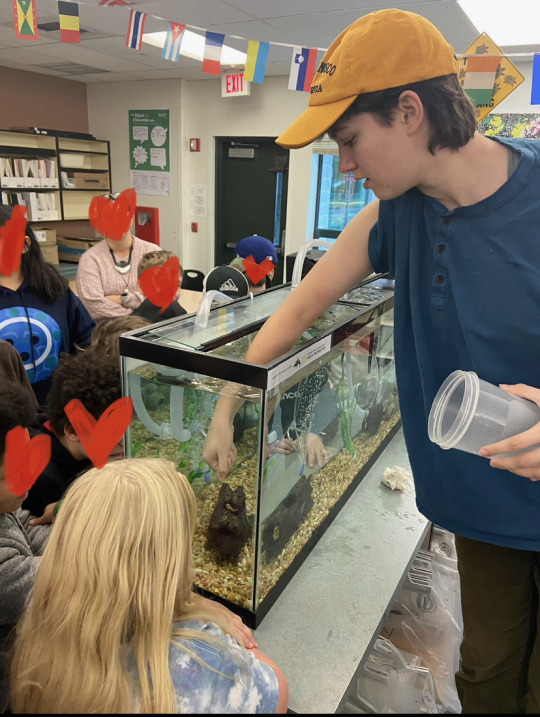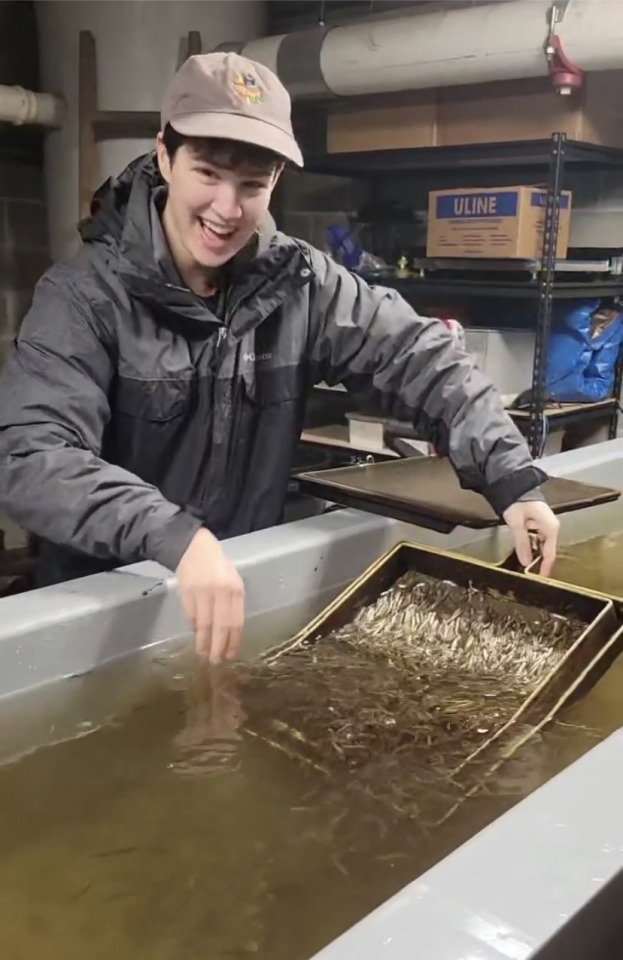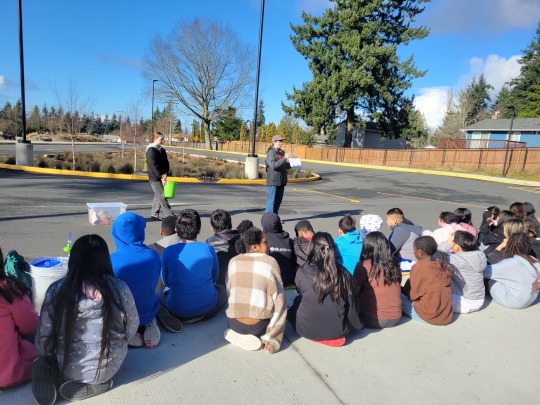Don't wanna be here? Send us removal request.
Text
Salmon in Schools!
Hey yall! I hope your internships have been as fun as mine. I’ve been having a blast over at Sound Salmon Solutions, an RFEG (Regional Fisheries Enhancement Group) in Mukilteo, as an Education Intern. Every Wednesday, I get up at 5am (yeeesh), make my breakfast and lunch, and leave the house at 6am to drive to our Mukilteo office. Once I get to the office, I usually have a bit of time to do some water quality checks on our home salmon tank (pH, ammonia, nitrite, and nitrate levels) and then I meet with the education team (and Faith, the other PoE intern, shout out Faith!) to go over the day. We visit one school a day, sometimes going to multiple classrooms. SSS’ Salmon in Schools programs provides the schools with a salmon tank & 100 eggs, and then over the course of a couple months the students get to watch the eggs grow to alevin, then fry, then they get to release the fry in a local stream. I even got to deliver some– I carefully transported these chum eggs from the Stillaguamish tribe hatchery all the way to an elementary school's tank.


It’s an amazing process that engages and involves Washington schoolchildren directly in measures to protect and promote salmon populations. SSS has three main lessons that they teach: Lesson 1 focuses on the salmon life stages, Lesson 2 is comprised of an outdoor game where kids get to BE salmon and dodge different predators and other dangers like dam turbines, and Lesson 3 focuses on environmental stewardship; the kids get to go outside and make their own mini-rain gardens comprised of a coffee filter, a mason jar, and all sorts of natural resources like rocks and native plants. In addition to the hands-on aspect of this internship, I’ve also been spending a good chunk of my time researching and writing a childrens’ theater script about salmon for SSS! My theater background and time at Seattle Childrens’ Theater inspired me to think differently about how environmental pedagogy can be approached in the classroom and outside of it, and so I’ve been exploring how Theater for Young Audiences can enhance and more deeply engage children in the stories of their local ecosystems. Working title for the script is “Small Fry” but I’ll probably be changing it, haha! Engaging in environmental education in all these different ways, while also getting to know how a nonprofit works and participating in hatchery management has been INVALUABLE. While I don’t know if I’ll end up working at an RFEG, I’ll be taking these lessons with me wherever I head next.
I didn’t grow up in Washington, so I never participated in Salmon in Schools programs or learned about salmon’s importance in the ecosystems of this area. It’s been amazing to learn about the role of hatcheries in raising salmon to replenish and supplement the wild salmon populations, and I’ve also gotten really familiar with the different life stages and physiologies of salmon! Just last week, we helped transfer the fry from their egg trays to the bigger troughs because they were getting WAY TOO BIG for their trays! So I spent the morning freeing the fry from their containers. It was absolutely magical to see 80,000 coho salmon swim in their two troughs. I got a little emotional, even, because I was part of that process. Look how cool!:


While this internship has been really fun, it’s come with some challenges. I’m pursuing departmental honors, so I’m doing 8 credits; this means I’m doing up to 10 hour days out in Mukilteo, then an additional 14ish hours outside of that doing research, writing the script, and doing analysis for SSS every week. It’s been hard to strike a balance and manage my time well, but I’m getting the hang of it now. Also, I’ve been struggling a bit with the script, in a couple ways: First, I have never written a children’s theater script before! AAH! Second, I’m writing it as I go, picking up more salmon knowledge on the job, which is cool but also means that I’m not an expert. Third, I’m struggling with incorporating the Indigenous perspective into the piece. I know that I want to emphasize the Indigenous peoples of Washington as interconnected with the wellbeing of salmon, but being not of Indigenous background myself, I’m hesitant to write those perspectives even though I’ve read a lot about them. I want to go about it in a respectful and holistic way, but right now I’m feeling like I don’t want to overstep or impose my own agenda. I’ve talked to my site supervisor and she said that I should just write and then reflect on it later, rather than get stuck now, so that’s what I’m doing.
Have any of you been feeling similarly about doing environmental work on stolen lands? How have you been grappling with or facing that? How have you been honoring and acknowledging Indigenous peoples of Washington in the work you’re doing in the internship, or in your lives?
1 note
·
View note